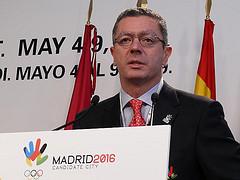Without Voice
No more genocide or massacres of ethnic minorities by Ricardo Sanchez-serra * the world has appreciated horrified genocide, mass killings and massacres of minorities by majority ethnic groups or the State, for reasons political, religious, cultural, racial, ancient rivalries. The massacres of Salsipuedes against Charrua indigenous and Napalpi against natives of Chaco, the Holocaust of the Jewish people by the nazis, the Armenian genocide (perpetrated by the Turks) and Rwanda (hutus against tutsis), Stalin’s great purge (against the Tatars and other minorities), Japanese Nanking against Chinese-, battle of Algiers (French against Algerians), crimes in the former YugoslaviSomalia, Iraq, Afghanistan, Katin (Russians against poles), Sri Lanka (against the Tamils). Also, of the Moroccans against Sahrawis, the Turks against Kurds, ethnocide against the Eskimos, the elimination or pogroms of the indigenous minorities in many places the world and its shipments to the ghettos or reservations, are a few examples from a long list of abuses and violations of human rights, especially of minorities. As it is known, at the time the League of Nations was created to ensure peace and security, but failed; then settled the UN, which is integrated by 192 countries, there are numerous conflicts only 10% are between States – and there are more than 6,500 Nations in the world, therefore a large majority is not or does not feel represented in this international organization. To try to fill that void was created in 1991 the Organization of unrepresented Nations and peoples (UNPO in its acronym in English), a follower of the teachings of Mahatma Gandhi international institution, non-violent and democratic, that seeks to protect indigenous peoples, minorities and inhabitants of occupied territories, promoting their human rights, protect the environment and find non violent solutions to conflicts that afflict them.
Among its members are they found, for example, the Assyrians, Mapuche, Kurds of Iran and Iraq, Greeks of Albania, Chechen, afrikaners, Turkmen of Iraq, Tibet, East Turkestan, Circassians, Hungarians in Romania, Tatars from Crimea, kalahui Hawaii, Abkhazian, Inner Mongolia, Taiwan, the khmer krom, tsimichian (Alaska), Baluchistan, mon, Aboriginal Australia, among many others. To enter this international body, whose President is the Tibetan Choephel Ngawang, applicants must commit themselves to respect these five principles: 1) believe in the equality of all Nations and peoples and the inalienable right to self-determination; (2) Comply with internationally accepted human rights standards; (3) The principle of democratic pluralism and reject totalitarianism or any form of religious intolerance; (4) Reject terrorism as a form of politics; and, 5) respect all peoples and population groups, including minority and majority populations within the territories inhabited by the participants, but they belong to different ethnic, religious or linguistic groups. Several legal instruments include the human rights of ethnic minorities as well as in the Universal Declaration of human rights, international covenants, the Convention of the Elimination of all forms of Racial Discrimination, the Convention of the rights of the child, the Declaration on the rights of persons belonging to national minorities, ethnic, religious or language. The UNPO, or voice of the voiceless, participates in several committees of the UN and is an effective instrument in the resolution of conflicts. Several of its members already own self-determination and managed to have their rights respected. Close to 20 years of existence, aspire that this organism is strengthened so that you continue struggling for world peace and respect for minorities.
 The ruler since before access to power should plan what they will do with the idea that planning is a rational and democratic exercise and that the fulfilment of goals and objectives are almost never achieved one hundred percent, already You should consider several variables that can affect political action. Thus, political discourse must be with breaks of the moments in which we live, in case of failure to do so this discourse can become more than demagogic. The rate proposed by Ruiz Massieu has both say slowly but surely. In terms of the conservation of power, which was the goal in the partisan politics of the moment its author, lived in that phrase is more than significant. Pace involves Cadence in the Act, the hasty can lead us to del yerro; better power is exercised with the proper rhythm of time in that we live, that rush to complacency, this almost always the less. That rush are desperate to have the power or keep it in a way almost always not licit. The people know to expect, is patient, if he is consents that their rulers are doing things well.
The ruler since before access to power should plan what they will do with the idea that planning is a rational and democratic exercise and that the fulfilment of goals and objectives are almost never achieved one hundred percent, already You should consider several variables that can affect political action. Thus, political discourse must be with breaks of the moments in which we live, in case of failure to do so this discourse can become more than demagogic. The rate proposed by Ruiz Massieu has both say slowly but surely. In terms of the conservation of power, which was the goal in the partisan politics of the moment its author, lived in that phrase is more than significant. Pace involves Cadence in the Act, the hasty can lead us to del yerro; better power is exercised with the proper rhythm of time in that we live, that rush to complacency, this almost always the less. That rush are desperate to have the power or keep it in a way almost always not licit. The people know to expect, is patient, if he is consents that their rulers are doing things well.  In such a way, to stimulate the reforestation, to concentrate the agrarian reform in the deforested areas, to create new social projects, extrativistas reserves, to value the resources you renewed are proposals that propitiate the sustainable development and can determine the recovery of the areas affected for the deforestation or bad use of the land. Under this question, it falls again the approach of the necessity of containment of the torts gifts into the region as well as the stimulaton to the net of security in the same one becomes essential, beyond detecting in the territory that activities as cattle the extensive one provokes great extension of deforestation what it allows in them to together point with illegal the agrarian occupation factors that must be breached in order to preserve the environment. For this, the technological advance, the biotechnology can assist in this process, however to using in sustainable way. In the context of the territorial occupation, the intra-regional migration made possible the reduction doses agrarian conflicts, therefore the withdrawal of the population was in search of better chances. Thus, the urban area grew what it facilitated the loss of conditions of demographic border of the region.
In such a way, to stimulate the reforestation, to concentrate the agrarian reform in the deforested areas, to create new social projects, extrativistas reserves, to value the resources you renewed are proposals that propitiate the sustainable development and can determine the recovery of the areas affected for the deforestation or bad use of the land. Under this question, it falls again the approach of the necessity of containment of the torts gifts into the region as well as the stimulaton to the net of security in the same one becomes essential, beyond detecting in the territory that activities as cattle the extensive one provokes great extension of deforestation what it allows in them to together point with illegal the agrarian occupation factors that must be breached in order to preserve the environment. For this, the technological advance, the biotechnology can assist in this process, however to using in sustainable way. In the context of the territorial occupation, the intra-regional migration made possible the reduction doses agrarian conflicts, therefore the withdrawal of the population was in search of better chances. Thus, the urban area grew what it facilitated the loss of conditions of demographic border of the region.  Certain changes that indicate that the opposition is not a monolithic block around the realization of primary for the choice of the candidate who will face Chavez 2012 have gradually noticed. Voices that arise in relation to that the next candidate should be a candidate for transition that must be supported by all parties in a species again Covenant and perform, once elected, a Government that will allow stabilizing the economic, political and social situation of the country are already having. The idea is not irrational. In my view the conditions are not right to tear us into an internal struggle of the factors of a hit by the Government and opposition by petty interests of characters who still seek to influence Government having been guilty leading this disaster that has been the management of Hugo Chavez and those responsible for. Everyone knows those are the characters, it is not necessary to mention them, but if it is necessary to say that there are still factors that refuse to carry out the changes that are needed in the Administration State and politics in order to leave behind the traditional take away your pa put me I, without thinking about the obvious needs of the collective Venezuelan.
Certain changes that indicate that the opposition is not a monolithic block around the realization of primary for the choice of the candidate who will face Chavez 2012 have gradually noticed. Voices that arise in relation to that the next candidate should be a candidate for transition that must be supported by all parties in a species again Covenant and perform, once elected, a Government that will allow stabilizing the economic, political and social situation of the country are already having. The idea is not irrational. In my view the conditions are not right to tear us into an internal struggle of the factors of a hit by the Government and opposition by petty interests of characters who still seek to influence Government having been guilty leading this disaster that has been the management of Hugo Chavez and those responsible for. Everyone knows those are the characters, it is not necessary to mention them, but if it is necessary to say that there are still factors that refuse to carry out the changes that are needed in the Administration State and politics in order to leave behind the traditional take away your pa put me I, without thinking about the obvious needs of the collective Venezuelan.